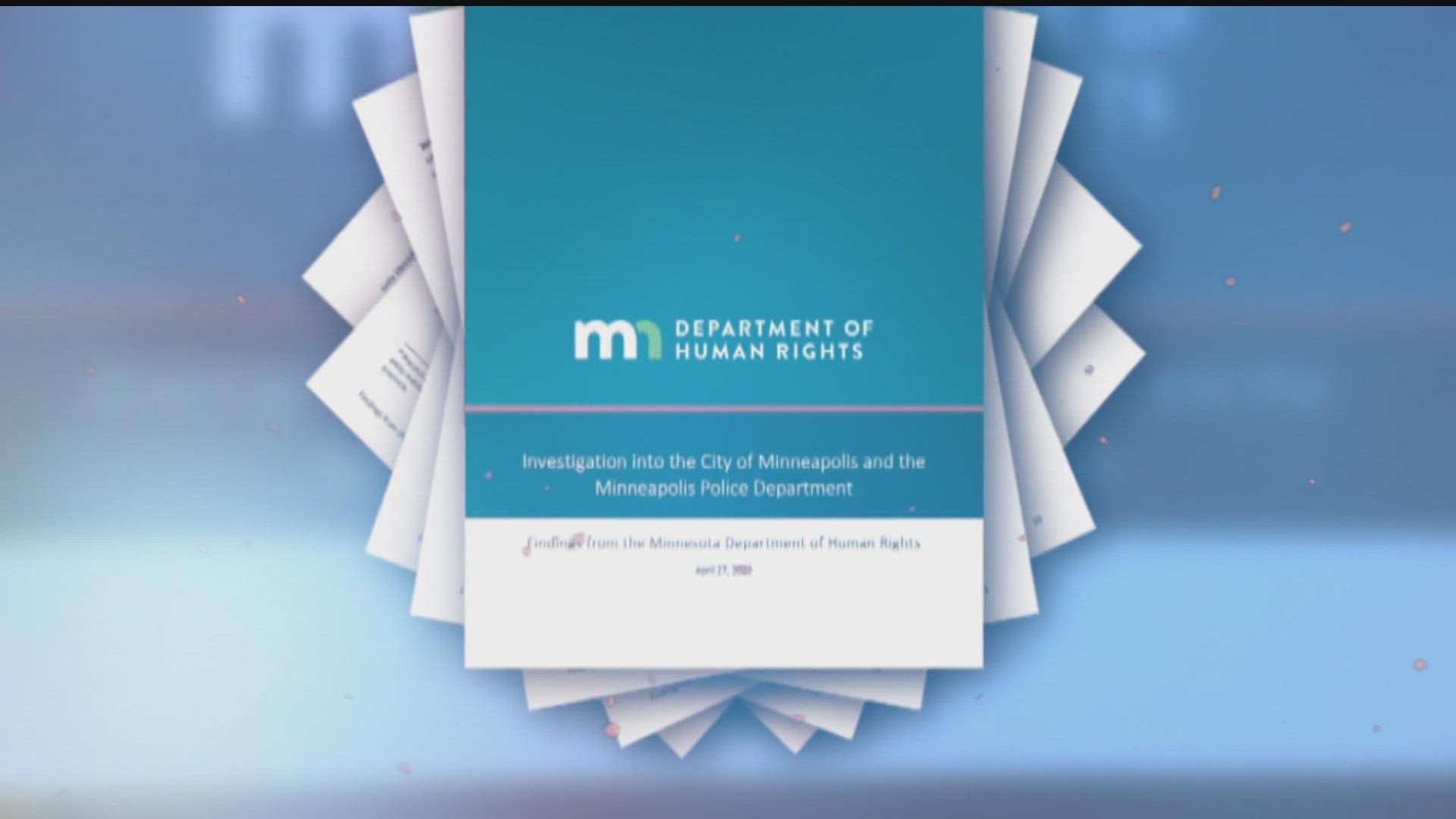MINNEAPOLIS — Among the pages and pages of alleged racial discrimination within Minneapolis Police Department outlined in an investigation by the Minnesota Department of Human Rights, there is an entire section describing how 'MPD uses covert social media to target Black leaders, Black organizations, and elected officials without a public safety objective'.
The allegations include several details and anecdotes gathered from MPD's covert social media accounts from Jan. 2010 to Dec. 2020. The report shows the department did not track and surveil white people unrelated to criminal activity the same way it did with Black people.
According to the report: ‘In one case, an MPD officer used an MPD covert account to pose as a Black community member to send a message to a local branch of the NAACP criticizing the group. In another case, an MPD officer posed as a community member and RSVP'd to attend the birthday party of a prominent Black civil rights lawyer and activist.’
The details offer a rare insight into a practice that journalist Tate Ryan-Mosley has been working to track in recent years.
"The report was pretty shocking, in terms of some of the details," said Ryan-Mosley, a digital rights and democracy reporter for the MIT Technology Review. "But based on my reporting, it's unfortunately kind of in line with some of what I was seeing."
For more than a year, Ryan-Mosley has been working on an investigation called "The Secret Police", which has detailed how cops in Minnesota used online surveillance following the murder of George Floyd. Her stories examined how law enforcement used various tactics, and software programs, to track everyone from journalists to protestors. But she says the state report goes a step further.
Tate Ryan-Mosley: "Seeing surveillance targeted at Black activist groups, by policing groups, really changes the power dynamics in a concerning way in public discourse."
Kent Erdahl: "Clearly this comes down hard on MPD, but how widespread do you think this type of surveillance is?"
Ryan-Mosley: "It's very widespread and it's only growing. I've looked at groups like the Detroit Police Department, the Portland Police Department, the New York Police Department and all of these groups are using increasingly sophisticated surveillance tools - and also increasingly unregulated surveillance tools - and digital tools. We're only seeing the beginning and I think we're only seeing the tip of the iceberg."
Erdahl: "Are there legal lines being crossed here, or is this all a bit blurry?"
Ryan-Mosley: "You're really not supposed to be surveilling somebody that's not under reasonable suspicion for a crime, but it's increasingly hard to know what it means to surveil somebody. Doing a Google search, is that surveillance? Is facial recognition surveillance? Is trying to find their private social media, which they are clearly trying to keep some information out of the public space - getting access to that - is that surveillance? Those are questions that the law has not yet really clearly defined."
And as use of technology grows, she says answering those questions is more important all the time.
Ryan-Mosley: "Anonymous free speech is protected under the constitution and this is really what my series has focused on because that's increasingly really, really difficult to guarantee. There are cameras everywhere and it's increasingly easy, not just to identify people who are in those images but identify a lot of information about them. It changes what it means to take part in a protest, and I think that's a really, really meaningful, important, public conversation that needs to be had and needs to be understood. It's changing how free speech works."
MPD already has a policy that requires a supervisor to approve the creation of a covert social media account, as well as a policy requiring yearly audits of covert accounts. However, the investigation found that those policies have been ineffective and audits have yet to occur.
According to the report: As a result, MPD officers continue to operate covert accounts without sufficient supervision, oversight, or accountability.

